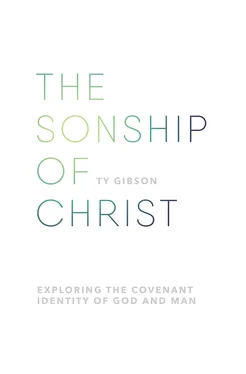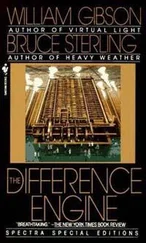So here it is.
The Sonship of Christ
Exploring the Covenant Identity of God and Man
Admittedly, it’s not a super catchy title, but it is very specific to the content of the book. So I’m hoping the title, and the subtitle, will become extremely meaningful to you before our journey’s end. As I chased the thread woven through the pages ahead, before I knew it more than 100,000 words had been written. “Yikes! Stop already,” I said to myself. So I stopped, and I edited. I didn’t want to bury or bore you, so I cut the thing down to 43,459 words. That’s manageable. In fact, at an average reading speed of 200 words per minute, you can get through this little volume in about three and a half hours. No sweat. That’s a lazy Sunday afternoon, and I am confident it will be well worth your time.
Another thing about the title: yes, I am aware, extremely so, that “Sonship” is a boy word.
Daughters of Eve, after all you’ve been through, I want you to know you were in my thoughts every sentence along the way. Please keep in mind throughout this exploration that everything of which we speak regarding sons is equally applicable to daughters. Throughout the biblical narrative, Sonship is a covenant mechanism for tracing the lineage of Christ. Point is, my dear sisters, you are not excluded from any of the glorious implications of the biblical Sonship theme any more than men are excluded from the biblical portrayals of God’s church as a woman and ultimately as a bride. Men along with women are represented by the bride, and women as well as men are represented by Sonship.
I’m so excited about The Sonship of Christ that I can’t wait for you to read it. Please email me at hello@thesonshipofchrist.com and let me know what you think. I am praying, just so you know, that the
ideas you are about to encounter will blow your mind and take you to a whole new level of biblical comprehension.
Finally, since books are expected to have introductions, here’s mine:
Children tend to know more than adults—not more in mass, but more in meaning. As we grow older and “smarter” we tend to forget profound things nobody ever had to tell us. So this book is a wink and a nod to a little boy who intuitively sensed the essential make up of reality when he asked the rather brilliant question, “If we was created, well, that must mean God was alone before we was here, so how could God be nice way back then if there weren’t nobody to be nice to? Maybe God weren’t never alone.”
Precisely, little guy.
Contents
endorsements 7
preface: kids know stuff 12
contents 17
TWO IDENTITIES 18
READING SCRIPTURE ON ITS OWN TERMS24
A PROPHECY OF PROGENY30
ISRAEL, MY SON 38
DAVID, MY SON 46
SOLOMON, MY SON54
COVENANT IDENTITY60
THE GRAND REENACTMENT68
MATTHEW’S GOSPEL—SON OF ABRAHAM 76
LUKE’S GOSPEL—SON OF ADAM 88
JOHN’S GOSPEL—ONLY BEGOTTEN SON 96
ROMANS—GOD’S FIRSTBORN SON 112
HEBREWS—OUR ETERNAL BROTHER 128
SON OF MAN 138
THE LAST ADAM 158
ETERNAL COVENANT PLEDGE 180
THE TRANSCENDENCE OF GOD 192
THE GENIUS OF THREE202
CUTTING DEEP INTO GOD 218
THE UNFORCER 234
A COVENANT STORY 260
“The Son of God cannot be God in the same eternal sense that the Father is God, we reason, or else He would not be called the Son.”
Chapter One
TWO IDENTITIES
What does the Bible mean when it calls Jesus “the Son of God”?
Oh, no! Is this gonna be one those boring, hairsplitting theological exercises?
Actually, no.
In fact, if you will take this little journey with me to its end, I assure you the rewards will be rich. You may even find yourself deeply moved by the beauty of God’s character and awestruck by the utter genius of the biblical narrative. Even if you find the above question boring at first glance, I promise you our time together will not be boring in the least.
First of all, you should be aware that this question has challenged Bible students for nearly two thousand years. It’s not an easy nut to crack. Scholars have been endlessly intrigued and baffled by the topic. And it’s easy to see why. On the rather compelling premise that Scripture calls Christ “the Son of God,” various groups have arisen throughout church history insisting that He could not, while bearing a title like that, preexist without a point of beginning, nor could He eternally coexist alongside the God whose “Son” He is. Logic, they insist, precludes a
son from chronologically coexisting concurrent with a father.
You can hardly blame them.
Our normal understanding of “son” includes the idea of birth, and Jesus is said in Scripture to be “begotten” or birthed. Naturally, then, to be a “son” suggests a point
of origin and a point of beginning. Since Jesus is called God’s “Son,” doesn’t it follow that He must have been generated from God and, therefore, had a starting point
as a distinct person from the Father?
Certainly, there is logic to the perspective.
So I want to say to those who take this view, you will find no disrespectful or dismissive attitude from me. I affirm you for being studious and for using your brain. As Galileo once said, “I do not feel obliged to believe that the same God who has endowed us with sense, reason, and intellect has intended us to forgo their use.” You have simply attempted to be logical and consistent, and I commend you for that.
But on the premise of your honesty and logic, I am asking that you take a serious look at what we will explore on the topic, because I think you will find the perspective in this book to be profoundly convincing. I will make the bold claim, in fact, that what we are about to discover is so obviously the truth regarding the Sonship of Christ, that once you see it, you won’t be able to unsee it. I realize this is a lot for this little book to live up to, but please allow me to give it my best shot by taking the journey with me to the last page. And whatever you do, do not jump ahead. Take the material in its order, because, in our treatment of the topic, one piece of the picture is vital to the next,
and the next, and so on, to the end.
No matter who you are or what position you have taken on the Sonship of Christ, you have no doubt felt the tension and complexity involved in trying to make sense out of two apparently contradictory claims in Scripture.
On the one hand, the Bible calls Jesus God’s “only begotten Son” (John 3:16) and describes Him as occupying a subordinate position under the Father (John 14:28;
1 Corinthians 15:27-28).
On the other hand, Scripture also states that Jesus is “in very nature God,” insisting that He shares “equality with God” (Philippians 2:5-6) and that He is the One who “made” all things that are “made,” placing Him, by contrast, in the unmade category (John 1:1-3). He is even called “the everlasting Father” (Isaiah 9:6, KJV), the eternal “I AM” (Exodus 3:14; John 8:58), and “the Almighty” (Revelation 1:8).
The tension between the two identities is immediately apparent.
The solution needs to be consistent with both of these claims . . .
and worthy of our wonder.
“Most Christians have been taught to handle Scripture as a doctrinal textbook, with the assumption that it basically operates like an encyclopedia from which to compose a collection of theological propositions.”
Chapter Two
READING SCRIPTURE ON ITS OWN TERMS
I’m going to suggest that the reason we struggle to make sense of the Sonship of Christ is due to a selective and narrow reading of Scripture that ignores the overall storyline of the book. Not that anyone intends to read the Bible selectively or with a narrow focus. It’s just that most Christians have been taught to handle Scripture as a doctrinal textbook, with the assumption that it basically operates like an encyclopedia from which to compose a collection of theological propositions. So we don’t really read the Bible, per se, but rather we tend to comb its pages searching for verses, sentences, even partial sentences and isolated words, and we then assemble the disjointed mass of “verses” into topical categories from which we compose “beliefs.”
Читать дальше












